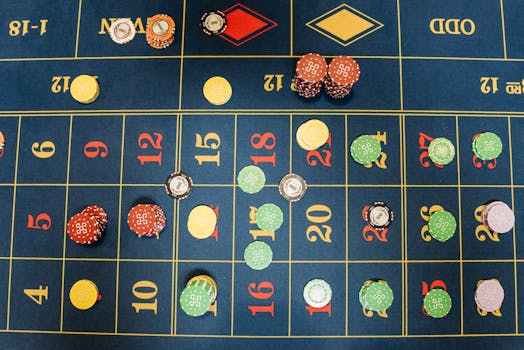RTP in Gambling: A User's Guide
Introduction to RTP in Gambling
When engaging in online gambling, you might have come across the term "RTP" which stands for Return to Player. This percentage value is crucial as it indicates the average amount of money players can expect to win back from their wagers over time. Understanding RTP is essential for anyone involved in gambling, as it helps in making informed decisions about where and how to play. In this guide, we delve into the nuances of RTP, explore different approaches related to it, and provide practical examples to enhance your gambling strategy.
Understanding RTP and Its Importance
RTP is expressed as a percentage and calculated over a theoretical lifespan of a game. For instance, a slot machine with an RTP of 96% theoretically returns $96 for every $100 wagered. It's a vital metric used by casinos to describe the potential payout of games over a long period. High RTP values are generally favorable to players, indicating better chances of winning back a significant portion of their bets.
Approaches to RTP in Different Gambling Forms
- Slot Machines
Slot machines are popular in both online and land-based casinos. The RTP of slot machines varies significantly from one game to another. Online slots typically offer higher RTP than their physical counterparts due to lower overhead costs.
- Advantages: Higher RTP means better potential returns. Online slots often feature RTPs as high as 98%.
- Disadvantages: Despite high RTP, slots remain games of chance with high volatility, meaning the actual short-term returns can vary greatly.
- Table Games
Games like blackjack, roulette, and baccarat also come with their RTP rates. For example, blackjack is known for having one of the highest RTPs if played with perfect strategy.
- Advantages: Table games often allow for strategic play which can maximize RTP.
- Disadvantages: Requires knowledge and skill to achieve optimal RTP, which can be a barrier for new players.
- Video Poker
Another popular form involves strategic elements similar to table games, often leading to higher RTPs.
- Advantages: With the right strategy, some video poker games can offer RTPs over 100%, theoretically offering a profit in the long run.
- Disadvantages: High RTP video poker games are challenging to find and require near-perfect play.
Practical Examples of RTP Application
Consider a practical scenario in an online casino. Alice decides to play a slot game with a stated RTP of 95%. She bets $100. According to the RTP, she can expect, on average, to get back $95 over an extended play period. Conversely, Bob plays blackjack with an RTP of 99% using basic strategy. His expected return is $99 for every $100 wagered, significantly higher than most slots.
Choosing the Right Game Based on RTP
When selecting a game, consider the RTP as part of your decision-making process. Look for games that combine a high RTP with enjoyable gameplay. Remember, while high RTP can improve your chances, it doesn't guarantee wins, and gambling should always be approached responsibly.
Conclusion and Recommendations
Understanding RTP is crucial for anyone interested in gambling. It provides insight into the potential return of the games and helps in choosing where and how to place bets. For the best gambling experience, opt for games with higher RTPs and where possible, use strategies to enhance your chances. Always gamble responsibly, setting limits to ensure it remains a fun and safe activity.
For further reading on RTP and gambling strategies, consider visiting reputable sites like GamblingCompliance or Casino.org for detailed guides and updates.
Remember, the knowledge of RTP in gambling can transform your gaming experience from merely hitting the spin button to making strategic, informed decisions that could potentially increase your returns in the long run.

.png)



